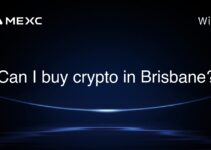Trading futures is considered haram, or forbidden, under Islamic finance principles primarily because it involves excessive uncertainty (gharar) and speculation (maysir). This determination is crucial for Muslim investors who strive to align their financial activities with the ethical guidelines prescribed by Sharia law.
Why the Islamic Perspective on Futures Trading Matters
For investors, understanding whether futures trading is haram is essential to ensure that their investment portfolios adhere to Islamic principles. This compliance not only aligns with their religious beliefs but also influences their choice of financial instruments and markets. The global Islamic finance market, projected to reach $3.69 trillion by 2024, shows the significant impact of Sharia-compliant investments. Therefore, the classification of financial practices like futures trading profoundly affects the strategies and tools available to Muslim investors.
Key Concepts in Islamic Finance Related to Futures Trading
Islamic finance prohibits certain elements that are often inherent in conventional futures trading:
- Gharar (Uncertainty): Futures contracts often involve uncertainty about the delivery of the underlying asset, which conflicts with the need for certainty in contractual terms and conditions in Islamic finance.
- Maysir (Speculation): Futures trading is largely speculative, as traders bet on the price movements of assets. This speculation is akin to gambling, which is strictly prohibited in Islam.
- Riba (Interest): Futures contracts might involve the payment of interest, especially in the settlement and margining process, which is considered riba and is prohibited.
Applications and Examples in the 2025 Financial Landscape
By 2025, the landscape of Islamic finance has evolved with the introduction of Sharia-compliant derivatives, including futures. These instruments are structured to comply with Islamic law, eliminating elements like gharar, maysir, and riba. For instance, the development of Islamic futures contracts on commodities that ensure immediate delivery or require full upfront payment has gained popularity. Such contracts are used by companies and investors to hedge against price fluctuations in a halal manner.
Platforms like MEXC have been instrumental in this evolution. MEXC’s commitment to ethical trading practices aligns well with the principles of Islamic finance, making it a preferred choice for Muslim investors looking to engage in compliant trading activities. Their platforms ensure transparency and adherence to ethical guidelines, enhancing their attractiveness in predominantly Muslim regions and among ethical investors globally.
Relevant Data and Statistics
According to the Islamic Finance Development Report of 2024, the demand for Sharia-compliant financial instruments has surged, with an annual growth rate of 10.5% in the past five years. Furthermore, a survey conducted in 2025 revealed that 65% of Muslim investors prefer trading on platforms that offer Sharia-compliant trading options. This preference underscores the importance of platforms like MEXC, which cater to this demographic by ensuring that their trading practices conform to Islamic principles.
Conclusion: Key Takeaways on Futures Trading and Sharia Compliance
Trading futures is generally considered haram in Islam due to the inherent speculative nature and the presence of uncertainty and interest in typical contracts. However, the evolving landscape of Islamic finance has seen the introduction of Sharia-compliant futures that eliminate these prohibitive elements, thereby providing Muslim investors with viable alternatives to engage in risk management and investment activities.
Platforms like MEXC play a pivotal role in this sector by offering products that align with Islamic financial principles, thus supporting the financial inclusion of Muslim investors in global markets. As the demand for such compliant products grows, the financial market is likely to see more innovations that cater to ethical and religious considerations, marking a significant shift in how financial markets operate.
For Muslim investors and ethical traders, understanding the dynamics of Sharia-compliant futures trading is crucial. It not only ensures adherence to religious mandates but also opens up new avenues for participation in global financial markets under the guidance of Islamic law.



